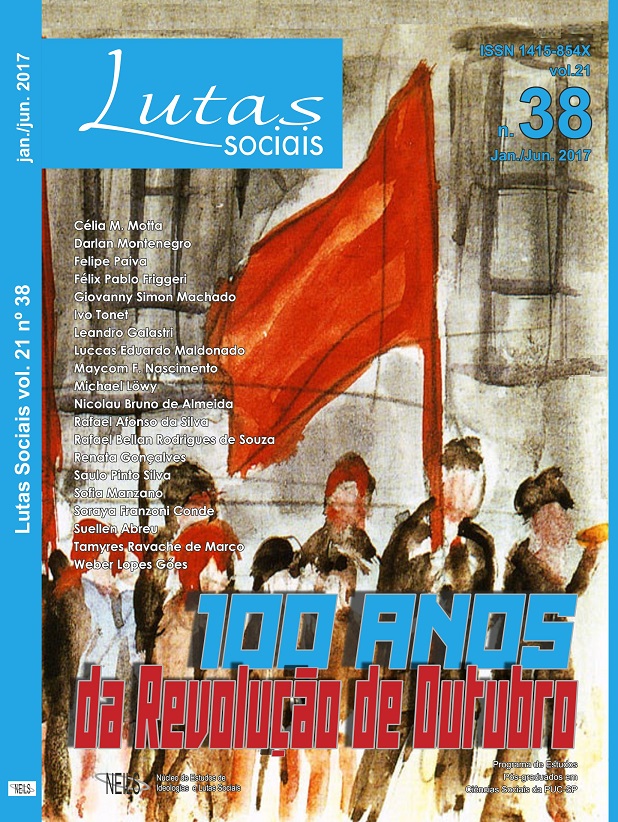Lenin and the Universalist Legacy of the October Revolution
DOI:
https://doi.org/10.23925/ls.v21i38.33252Keywords:
Russian revolution, Lenin, Universalism, Emancipation.Abstract
This article examines the political legacy of the October Revolution, guided by the universalist conception of revolutionary action proposed by Lenin in What is to be Done?, which constituted one of the defining characteristics of the Bolshevik Party. Based on the hypothesis that the origins of the revolutionary project are outside of class and go beyond the immediate interests of the economic struggle, we suggest that, despite the enormous difference in historical contexts, Lenin’s conflict with the so-called “economicists” prefigures the disagreements that divide the left today, between projects of universal emancipation, on the one hand, and the fragmentary and particularistic logic characteristic of important social movements, on the other.Downloads
Published
2017-06-13
How to Cite
Montenegro, D., & de Marco, T. R. (2017). Lenin and the Universalist Legacy of the October Revolution. Lutas Sociais, 21(38), 179–191. https://doi.org/10.23925/ls.v21i38.33252
Issue
Section
Dossier
License
Matérias assinadas não expressam necessariamente a posição do coletivo da revista e são de exclusiva responsabilidade do(a)s respectivo(a)s autore(a)s.
Ao enviar seus textos, o(a)s autore(a)s cedem seus direitos à Lutas Sociais, que autoriza, com prévia permissão do Comitê Editorial, a reprodução das publicações, desde que conste o crédito de referência.



